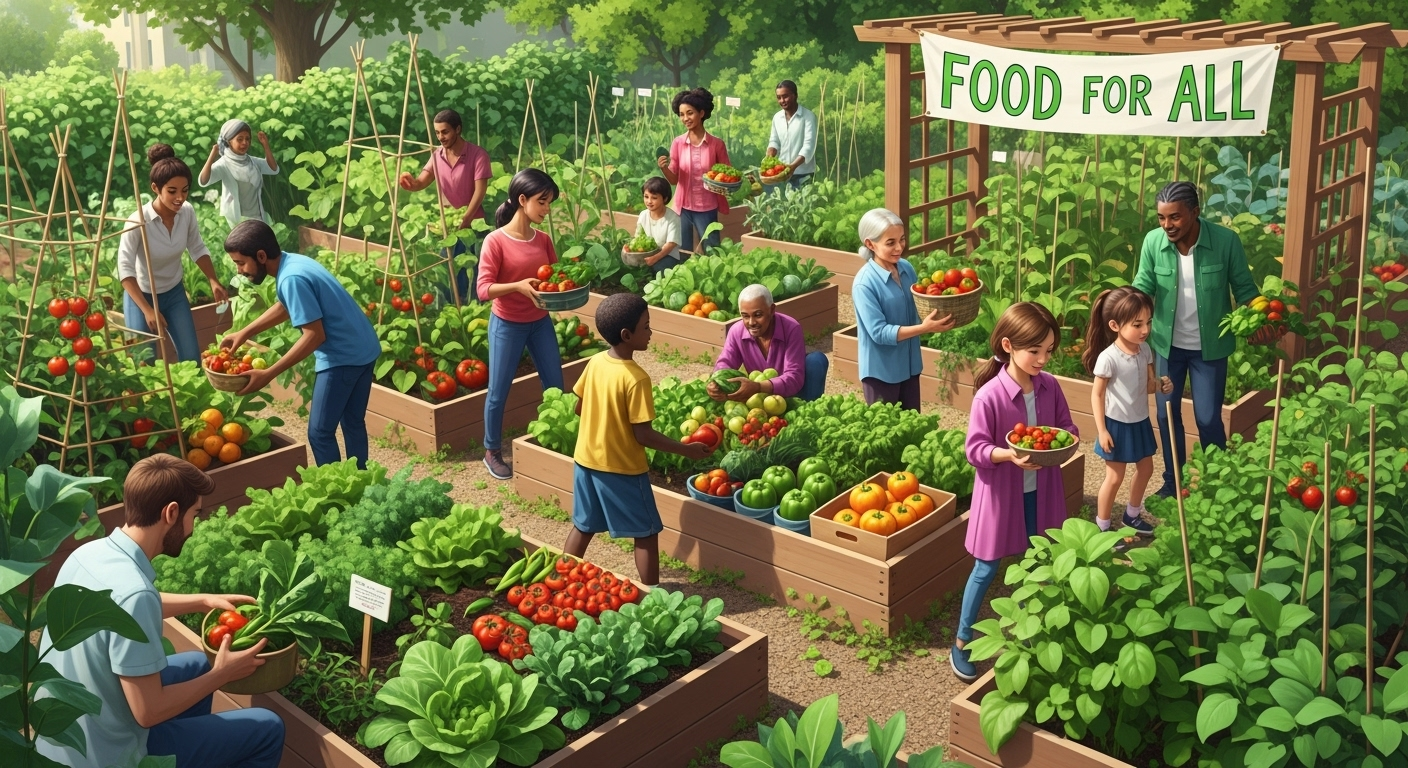Food justice encompasses the right of all people to access healthy, culturally appropriate, and sustainably produced food while addressing the systemic inequalities that create food insecurity and environmental degradation in our agricultural systems.
Industrial agriculture has created a system where healthy food is often inaccessible to low-income communities while environmental costs are borne disproportionately by rural and minority populations. Changing this requires coordinated efforts across policy, economics, and community organizing.
Urban agriculture projects, including community gardens and rooftop farms, increase access to fresh produce while building community connections and food system knowledge. These initiatives often become catalysts for broader community development and environmental education programs.
Supporting local farmers through farmers markets, community-supported agriculture programs, and farm-to-school initiatives creates economic opportunities for sustainable producers while reducing transportation emissions and connecting consumers with food sources.
Policy advocacy for agricultural reform addresses subsidies that favor industrial production over sustainable practices. Supporting legislation that promotes organic farming, fair labor standards, and environmental protection creates systemic change beyond individual consumer choices.
Food sovereignty movements, particularly those led by Indigenous and immigrant communities, offer models for culturally appropriate and environmentally sustainable food systems. These approaches integrate traditional knowledge with modern sustainable practices.
Nutrition education programs that acknowledge cultural food traditions while promoting health create more effective interventions than one-size-fits-all approaches. Cooking classes, school garden programs, and community nutrition initiatives build skills while celebrating food diversity.
Addressing food justice requires recognizing the connections between environmental sustainability, economic equity, and public health. Successful initiatives integrate these concerns while centering the voices and needs of communities most affected by food system inequities.
